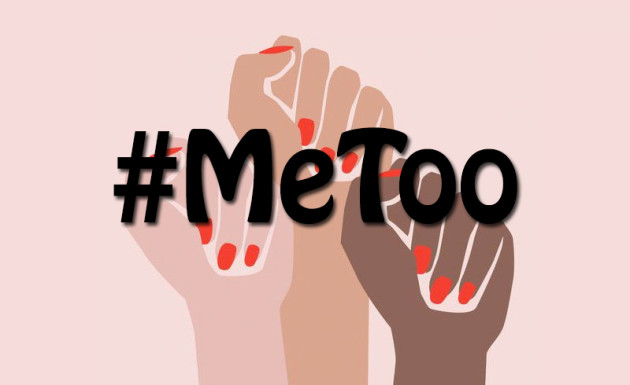
by Nechama Liss-Levinson
#MeToo: The Saga of Bilhah, Zilpah, Hagar, and the List Goes On…
 At its best, Judaism offers me an existential anchor in life’s difficult times–for example, in the laws and customs dealing with death and mourning. But at its worst, Judaism’s patriarchal underpinnings and assumptions cause me both grief and anger. The Torah portions in the book of Genesis, which we read at this time of the year, are filled with stories of creation, of the world, of families, of nations and of the Jewish people.
At its best, Judaism offers me an existential anchor in life’s difficult times–for example, in the laws and customs dealing with death and mourning. But at its worst, Judaism’s patriarchal underpinnings and assumptions cause me both grief and anger. The Torah portions in the book of Genesis, which we read at this time of the year, are filled with stories of creation, of the world, of families, of nations and of the Jewish people.
But in full sight are numerous heart-rending #MeToos, sexually questionable and at times sexually abusive relationships between the men and women who are our forebears; for example, between Abraham and Sarah’s handmaiden Hagar, and between Jacob and the handmaidens of Rachel and Leah, namely Bilhah and Zilpah. In both narratives, the wives offer up their slaves to become impregnated by their husbands. The slave becomes a kind of surrogate mother, enacting the hope that the “real” wife will thereby become a mother.
But what happened to these women who were sexually appropriated as egg donors and surrogate mothers when they had a body but no voice? Hagar becomes the mother of Ishmael, and is honored in the Koran, but not in our tradition. Bilhah and Zilpah, who give birth to four of the twelve tribes of Israel, are neither acknowledged nor honored as matriarchs of our people. Yes, there are some independent or renewal minyanim that include the names of Bilhah and Zilpah in their prayer services, but they are very rare. (As a further irony, it is only in the last 25 years that the names of Sarah, Rebecca, Rachel and Leah have made their way into the liturgy, appearing in versions of the Amidah prayer in the Reform, Reconstructionist, and Conservative siddurim.)
In a recent moving article at the Jewish Women’s Archive, Josephine Rosman writes that she would like to reclaim Bilhah and Zilpah (and others, such as Hagar), seeing them as “emblematic of all the women who have been left out of and left behind by history.” I applaud Ms. Rosman, but have come to the conclusion that we must go much farther than just remembering Bilhah and Zilpah. We need to use their names and their stories to discuss and change the rape culture which continues to this day and causes so many women to cry out with the hashtag #MeToo. We can no longer skip over these stories in our schools or refuse to discuss the messages they reveal. We need to use these narratives in afternoon Hebrew Schools, Day Schools and Yeshivas to teach girls and boys how to feel valued and how to value others. We need to hear more about these stories and their relevance for relationships between men and women at home and in the workplace from our Rabbis and leaders during the Shabbat sermon, and on Rosh HaShana and Yom Kippur too.
We no longer have the luxury of simply asking “Why aren’t Bilhah and Zilpah in our liturgy?” Those questions must be the beginning of a longer conversation. We need to understand these women (and so many others in our tradition) as examples of how treating women as sexual objects is a serious problem which infects our current society. In The Handmaid’s Tale, Margaret Atwood’s dystopian novel, the government of Gilead created an answer to their grave national fertility crisis. In short, the “handmaids” of the tale must sit in the lap of their mistresses and be raped by the family patriarch, in order to bear children. They become the Bilhahs and the Zilpahs of this futuristic society.
I fully understand that this sexual abuse of women may have been common practice at the time of the lives of the Matriarchs and Patriarchs, as were slavery, polygamy, infanticide and child sacrifice. And it is also true that the Jewish religion often tried to veer away from some of the more repugnant aspects of life in those times. And eventually we outlawed each of the above travesties of human dignity and speak vociferously against each one of them.
It’s time as Jews that we say “Good-bye Harvey. You can no longer get away with it. Hello Bilhah and Zilpah. We are very sorry for the way we’ve treated you.” We raised Harvey (and Abraham and all the others) to feel like they were so special that their behaviors would always be acceptable. And we told Bilhah and Zilpah (and Hagar and all the others) to not think or speak about what was done to them at all. It is time to remember what was done to them. It is time to speak out. It is time for change.
Nechama Liss-Levinson, Ph.D. is a psychologist, writer and activist. Her book, When the Hurricane Came, tells the story of resilience and spunk of Gertie, a nine-year-old Jewish girl, in the aftermath of Hurricane Katrina.